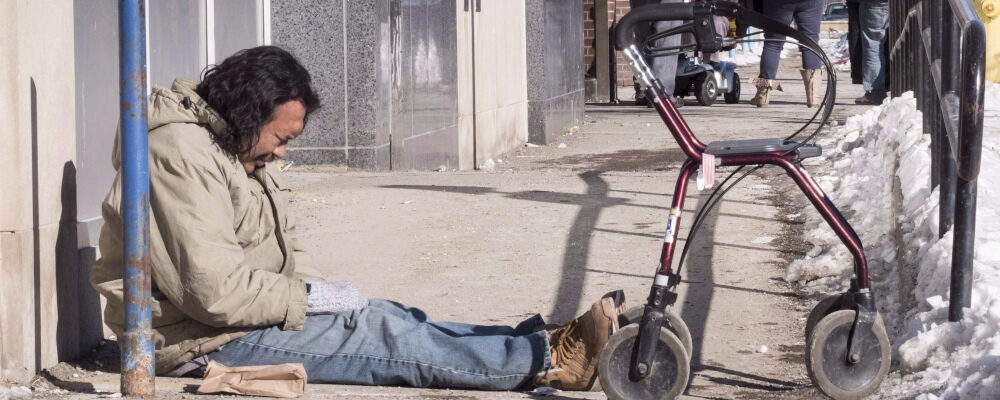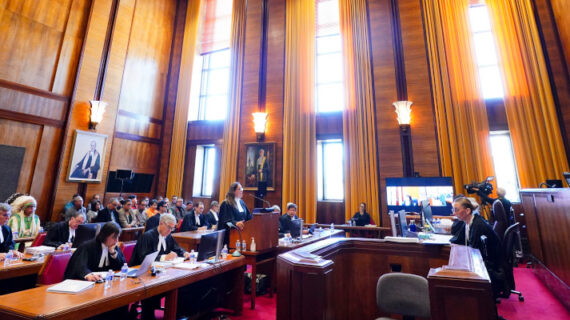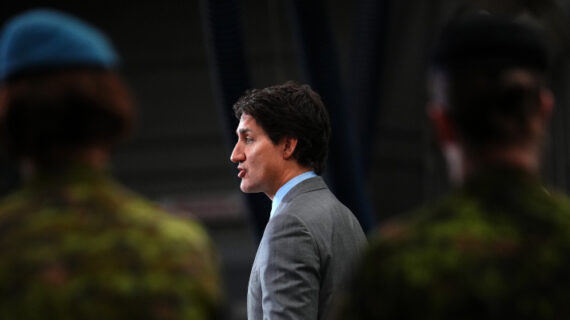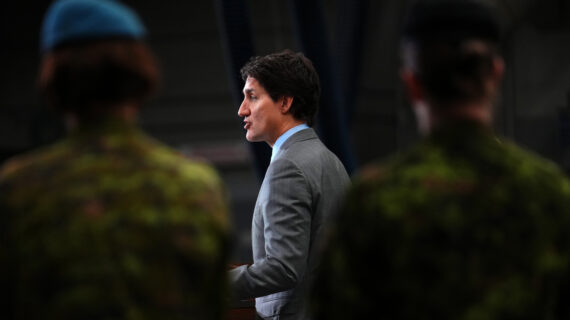The Trudeau government frequently touts its record on reducing Canada’s poverty rates due mainly to the Canada Child Benefit. Its claims mostly stand up to scrutiny. Targeted public spending has measurably reduced poverty according to an arithmetic conception of poverty as a solely materialistic state of being.
Yet many of the academics, pundits and politicians who talk about poverty lack a textured understanding of the individuals and families who experience poverty in materialistic and non-materialistic terms. Canadians in poverty have reason to be a bit skeptical of the second and third-generation Laurentians who have cast themselves as tribunes of the less fortunate, gesticulating their anger over the plight of the poor whilst brandishing $5,000 wristwatches.
There’s a verse in the Christian Bible that quotes Jesus as saying “It is easier for a camel to go through the eye of a needle than for a rich man to enter into the kingdom of God.” This is a rather harsh rebuke that I cannot comment on, but I’ll say that an equally onerous challenge is for a rich person to understand the experience of being poor—with the noted exception of those rare individuals who manages to pull off a Horatio Alger-worthy rise from rags to riches.
A richer, more textured understanding of poverty that saw struggling Canadians as individuals with complex sets of needs, interests and aspirations rather than mere statistics would cause the government to place as much attention on creating the conditions for hope as it does on the clever design of income-support programs.
I grew up what in hindsight would be considered a lower-middle-class environment. Our lives were marked by precious little money and moments when the creditors might be a step away, but a stable home with two consistently working parents who employed every effort to improve our prospects. Staying on one side of the ledger book was as much a stroke of luck as it was a feat of indefatigable effort.
I paid for university by selling a car that I restored and took side jobs like driving cab. Even with that, I couldn’t afford textbooks for the first two years, so the reserve reading room—where assigned readings for every course could be had for a period of three hours—became my friend. But my parents gave every spare penny they could, gladly and cheerfully. I graduated and became the first member of my family to get a degree, beating a cousin by one year. But I also readily admit my luck.
My father, on the other hand, knew what real poverty was. He left a troubled home, quit school, and hitchhiked to Toronto where he got a job with a moving company. Until he had earned enough to pay for a room in a boarding house, he banked most of his meal allowances and slept in either one of the trucks or on a couch in the company’s storage warehouse. He was 12 years old at the time.
It is because of these things that I feel emboldened to comment on the nature of poverty. Yes, it is the lack of money, of food, of lodging, and of opportunity. But those are the things you see: the outward symptoms of the syndrome. What you don’t see—and what our white knight wannabes do not appreciate—is the lack of something we call “hope.”
Hope is subtle and nuanced. The transmission mechanism for public policy is complex. At some level, it requires that policymakers distinguish between “transitory poverty” and persistent poverty” and recognize that the messages and policies to make progress on both will necessary differ. It also demands that they recognize that while policy must confront systemic factors, it needs to inculcate a sense of agency and the possibility of a different and better future. A “hand up” rather than merely a “handout” may sound a bit cliched but it actually expresses a deep insight about empowering people rather than merely solving for their basic needs.
Want to address systemic poverty? Then policymakers have to think beyond materialism. They need to create the conditions for hope. They must seek to enable people like my dad to envision a future better than a couch in a warehouse. My dad would have eagerly taken the quarterly cheque for $250 set out in this year’s federal budget. But it was the hope of a better tomorrow that he really desired.

Ottawa’s latest budget actually had plenty of money for Canadians in poverty. The government’s poverty reduction strategy isn’t suffering from a lack of dollars. But it is ultimately lacking a vision of how to help people take control of their lives and climb the ladder from poverty to the middle class.
Our prime minister once commented on Canada becoming the world’s first “post-national” country. I do not know whether this is true, but it is becoming clear that we are heading toward becoming a post-hope one.




